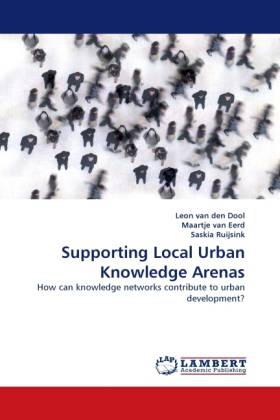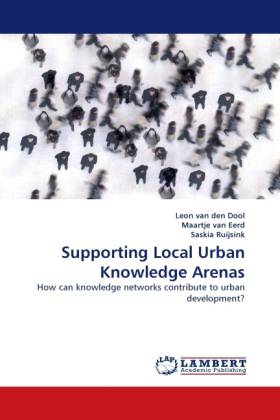
- Afhalen na 1 uur in een winkel met voorraad
- Gratis thuislevering in België vanaf € 30
- Ruim aanbod met 7 miljoen producten
- Afhalen na 1 uur in een winkel met voorraad
- Gratis thuislevering in België vanaf € 30
- Ruim aanbod met 7 miljoen producten
Zoeken
Supporting Local Urban Knowledge Arenas
How can knowledge networks contribute to urban development?
Leon van den Dool, Maartje Van Eerd, Saskia Ruijsink
Paperback | Engels
€ 58,45
+ 116 punten
Omschrijving
The year 2007 marks the moment when half of the world's population live in cities and one third of the urban population live in slum areas without access to proper housing, water, basic education, health care and other facilities. Urbanization worldwide will dominate Asia and Africa up and until 2030 and there is a concern it will go hand in hand with increasing urban poverty. But cities will not just be sources of problems. They also offer a platform for solutions. This study is based on the underlying assumption that it is essential that cities actively use their innovative, creative and learning capacity to create and share knowledge and experiences on how to reduce urban poverty. The Institute for Housing and Urban Development Studies (IHS) carried out a study in 2008 to assess the success factors for 'Local Urban Knowledge Arenas' (LUKAs) and the feasibility of supporting them. This publication draws largely on the findings of that study. LUKAs can play a crucial role in bringing research and practice together with the aim of developing programmes, projects and actions that contribute to urban development and help to overcome urban poverty.
Specificaties
Betrokkenen
- Auteur(s):
- Uitgeverij:
Inhoud
- Aantal bladzijden:
- 152
- Taal:
- Engels
Eigenschappen
- Productcode (EAN):
- 9783838371580
- Verschijningsdatum:
- 21/01/2011
- Uitvoering:
- Paperback
- Formaat:
- Trade paperback (VS)
- Afmetingen:
- 152 mm x 229 mm
- Gewicht:
- 231 g

Alleen bij Standaard Boekhandel
+ 116 punten op je klantenkaart van Standaard Boekhandel
Beoordelingen
We publiceren alleen reviews die voldoen aan de voorwaarden voor reviews. Bekijk onze voorwaarden voor reviews.











